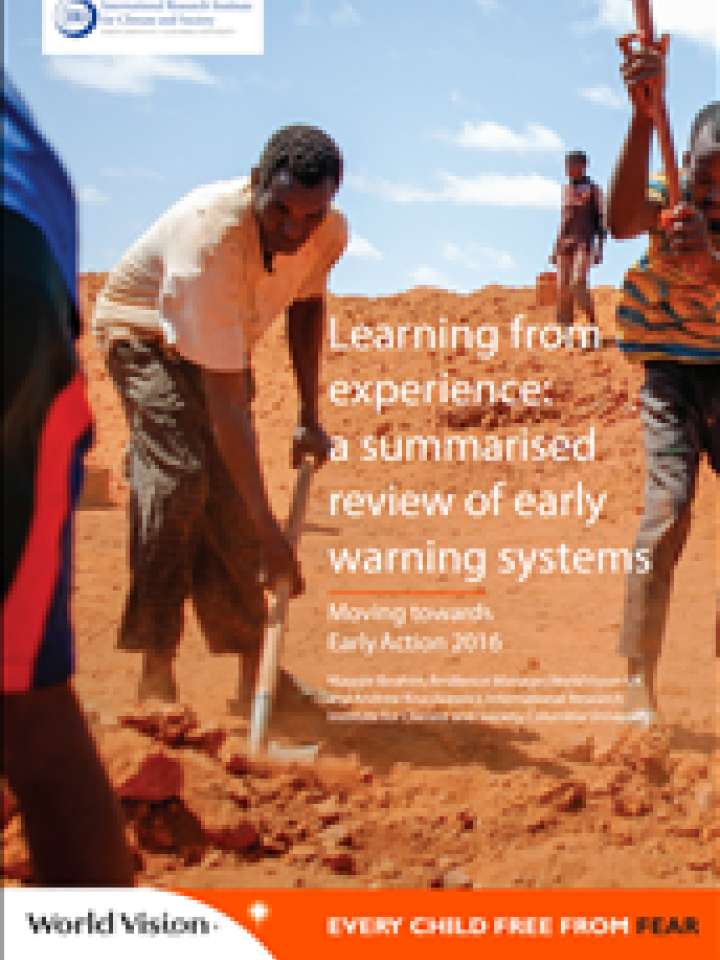Learning from experience: a summarised review of early warning systems
This report reviews early warning systems (EWS) following the failure of agencies, donors and the international community to prepare and respond to the Horn of Africa drought and famine in 2011. With the increase in frequency of disasters, there is a need to improve early warning systems (EWS) for early action (EA) to reduce the risks faced by children and their families. As a consequence, the term early warning, early action (EWEA) has become increasingly common among those responding to slow-onset disasters.
Effective EWS are ones that catalyse action early, yet the main challenge to building an effective EWS is the lack of strong evidence as to what information leads to action.
A set of common principles have emerged from this review:
- People-centred - empower individuals and communities to ‘act in sufficient time and in an appropriate manner to reduce the possibility of personal injury, loss of life and damage to property and the environment’.
- ‘No-regrets’ - actions by households, communities, and local/ national/international institutions that can be justified from economic, and social, and environmental perspectives whether natural hazard events or climate change (or other hazards) take place or not. ‘No-regrets’ actions increase resilience, which is the ability of a ‘system’ to deal with different types of hazards in a timely, efficient, and equitable manner. “Increasing resilience is the basis for sustainable growth in a world of multiple hazards”.
- Demand-driven - work with agencies, ministries, specific countries where there is a desire to improve current practice. Understanding the perception of risks from these stakeholders’ perspectives.
- Champion EWS for early action- to influence upper management, governments and donors through evidence in a timely manner.
- Work with governments – work at different levels and contribute to the overall disaster risk management strategy of the respective government.
- Build on existing strengths of the agency or partners - this will allow for progress to be made and identification of partnerships to fill gaps.
Explore further
